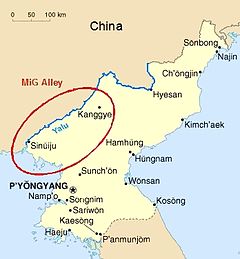
American
journalists Laura Ling, right, and Euna Lee: The two, who
work
for Al Gore's Current TV, have now been in North Korean hands
for
well over a month. They are to be tried for the crime of 'Hostility
to
the Chosun Nation.'
Daily North Korea,
South Korea
Arrest of U.S.
Journalists Triggers China Crackdown on Refugees
"On
March 17, just when regulations on refugees which had been strengthened during
and after the Beijing Olympics began to weaken, Laura Ling and Euna Lee were
caught and detained by North Korean border guards while looking for sources
along the Tumen River. Due to its own concerns over foreign media success in
collecting news material, the Chinese police subsequently began pursuing
missionaries and NGO activists who aid refugees in China."
By Lee Sung Jin
May 10, 2009
South Korea - Daily North Korea - Original
Article (English)
Changchun, China: Since North
Korea's detention of the two U.S. journalists, Korean refugees in China have been
hiding more deeply to preserve themselves - and those engaged in assisting them
have followed suit.
On March 17, just when
regulations on refugees which had been strengthened during and after the Beijing
Olympics began to weaken - Laura Ling and Euna Lee were caught and detained by
North Korean border guards while looking for sources along the Tumen River.
Due to its own concerns over
foreign media success in collecting news material, the Chinese police
subsequently began pursuing missionaries and NGO activists who aid refugees in
China. This is why Korean-Chinese, who act as guides for North Korean refugees
in China, are going underground. And as the network that connects helpers and
refugees has begun shaking, the number of refugees without security has risen.
Since the 1990s, a
Korean-Chinese man named "Kim" has aided refugees with the support of
a U.S. Protestant organization. He explained, "During the Beijing Olympics
last year, it wasn't as hard as it is today." He has had to drop his
correspondence with all North Korean refugees that he used to contact.
Posted by WORLDMEETS.US
He has also changed his
mobile-phone number and left his house, staying instead at his relative's home
in Dunhua, Jilin [China]. He no longer risks meeting missionaries or NGO
activists and although he worries about the refugees he once took care of, he
says it is unavoidable.
In fact even when caught,
it's rare for refugee helpers like Mr. Kim to be put under arrest, since with a
10,000-20,000 yuan penalty [$1500-$3000], they can make bail easily.
The problem is that when they
are caught, the refugees they aid are often traced during interrogation and
repatriated to North Korea. Therefore, activists working around Yanbian are
waiting for Chinese police regulations too again relax.
He explained, "For the
past few years, the number of people crossing the river has been dropping. But
many who have been caught come back to China again. Such people already have
ways to survive, so they cross the border again immediately after being
released. Some have experienced this several times: they are caught,
repatriated, released and cross the border again, eventually trying to reach
South Korea. I can say that today, one rarely meets first-time refugees from he
North."†
Posted by WORLDMEETS.US
The first stop on the refugee
sojourn is Korea's Yanbian Autonomous Prefecture. They generally leave North
Korea from Musan, Hoiryeong, Onsung, Saebyul and Eunduk, and go to Helong,
Longjing, Tumen and Huichun - all cities in the Yanbian region.
 The Yalu River region [map, left] isnít used as a crossing point, because the Yalu
is quite wide and in cities along it on the Chinese side, the number of
Korean-Chinese residents are low. Those who decide to head for China from
Yangkang, South Hamkyung Provinces as well as North Hamkyung Province select
the Tumen River [map, below]. Even the people from Pyongyang and Hwanghae Province head for
the Tumen River. It is narrow in parts and the concentration of Korean-Chinese
residents on the China side is higher. Many refugees finally head for
Wangching, a suburb of Yanji, the densely-populated capital city of the region.
The Yalu River region [map, left] isnít used as a crossing point, because the Yalu
is quite wide and in cities along it on the Chinese side, the number of
Korean-Chinese residents are low. Those who decide to head for China from
Yangkang, South Hamkyung Provinces as well as North Hamkyung Province select
the Tumen River [map, below]. Even the people from Pyongyang and Hwanghae Province head for
the Tumen River. It is narrow in parts and the concentration of Korean-Chinese
residents on the China side is higher. Many refugees finally head for
Wangching, a suburb of Yanji, the densely-populated capital city of the region.
 If people are prepared to cross the Yalu River, the route they usually
use is via Changbai on the opposite side of the river from Hyesan, the biggest
city in the region of the upper Yalu on the North Korean side. However, it's a
long way from Changbai to anywhere else - so the number of routes for refugees
to take is limited.
If people are prepared to cross the Yalu River, the route they usually
use is via Changbai on the opposite side of the river from Hyesan, the biggest
city in the region of the upper Yalu on the North Korean side. However, it's a
long way from Changbai to anywhere else - so the number of routes for refugees
to take is limited.
[Posted by WORLDMEETS.US May 12, 5:44am]